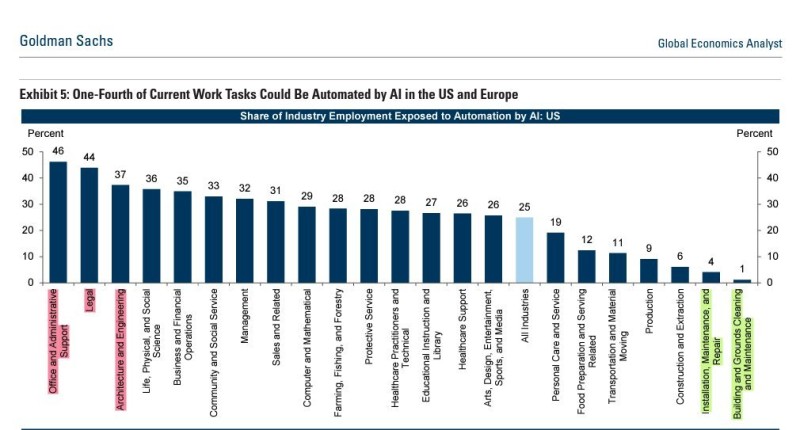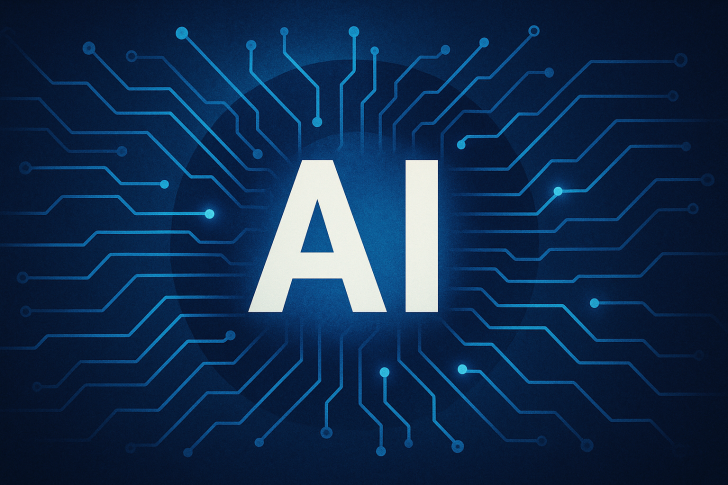Artificial intelligence is reshaping the job market in unexpected ways. Goldman Sachs' Global Economics Analyst report shows that AI automation will hit white-collar sectors first, not blue-collar labor. Administrative support, legal services, and architecture face the greatest exposure to AI-driven change, while manual jobs in construction and maintenance remain largely protected. This marks a fundamental shift in how cognitive and clerical work gets done.
Which Jobs Face the Greatest AI Risk
A chart shared by trader Aadit Sheth from Goldman Sachs' analysis titled "One-Fourth of Current Work Tasks Could Be Automated by AI in the US and Europe" breaks down automation exposure across industries. Office and administrative support roles top the list at 46% exposure, followed closely by legal services at 44%, and architecture and engineering at 37%.

Financial operations and business services face 35–36% risk. Mid-range sectors include community, social, and educational services at 29–33%, with healthcare and media at 26–28%. On the safer end, personal care and food service sit at 12–19%, while transportation, production, and extraction range from 6–11%. The least vulnerable jobs are maintenance and building services at just 1–4%. Overall, the report estimates 25% of total U.S. work tasks could be automated through AI.
Why AI Targets Office Work, Not Physical Labor
The data reveals a clear trend: AI is coming for cognitive tasks, not manual ones. While previous automation waves displaced factory workers, modern AI tools like GPT-4 excel at information processing, analysis, and communication — the core functions of professional office work. These systems can draft legal documents, write and debug code, conduct research, generate presentations, and manage customer communication. Meanwhile, jobs requiring physical dexterity, real-world problem-solving, or hands-on precision — like construction, repair work, or cleaning — remain far less vulnerable to automation.
What This Means for the Economy and Workforce
Goldman Sachs projects AI could boost global GDP by 7% over the next decade through productivity gains, but this growth comes with structural challenges. Professionals will need to learn how to work alongside AI tools rather than compete against them. Most affected roles won't disappear but will transform, blending human judgment with algorithmic efficiency. Skills like data literacy, prompt engineering, and digital strategy will become essential across nearly every white-collar field. The transition won't happen overnight, but it will permanently reshape how knowledge work gets done.
 Usman Salis
Usman Salis

 Usman Salis
Usman Salis


